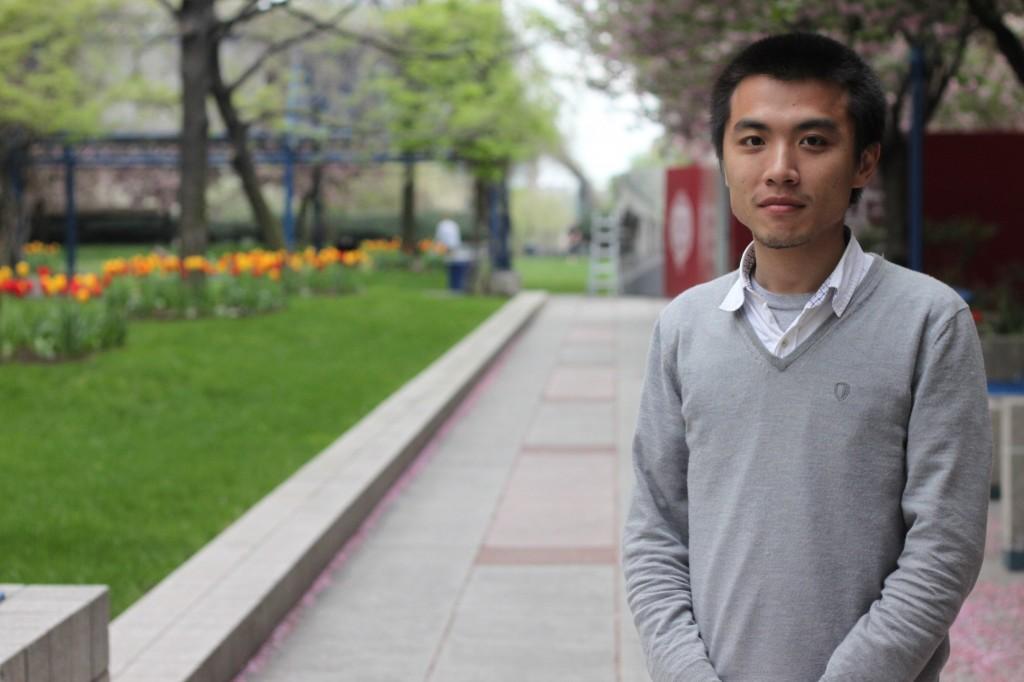Yuta Aoki Reflects on Aftermath of Japan Disasters
July 13, 2011

Published: April 20, 2011
Yuta Aoki, a student at Fordham College at Lincoln Center (FCLC) ’12, shared with the Observer his family’s expeirnece in Japan. Aoki is a visual srts major from Tokyo,. It has almost been two months since his native country faced a disastrous earthquake of 9.0 magnitude and subsequent tsunami, but Aoki is still concerned for his family. His family lives 150 miles from Fukishima, where a powerful nuclear plant was damaged causing a large nuclear accident, leaving over 130,000 residents homeless. As recently, the death toll reached nearly 15,000, and according to the New York Times, the death toll is expected to reach 20,000. The Observer caught up with Aoki to see how he felt about the disaster two months later.
The Observer: What was your reaction when you heard the tsunami and earthquake had occurred in your home country?
Yuta Aoki: My family lives in Tokyo, and I know few Japanese people from Fukushima [where the disaster occurred]. Although every Japanese person is always aware of [the threat of] earthquakes, it was so shocking. That morning I was in the school and my father sent [an] email telling that everyone is safe. First, I couldn’t understand what he was talking about, he didn’t mentioned about the earthquake, but then I saw disastrous pictures on Yahoo’s website. I have met a person from Tohoku. She is a student at Berkeley College. I heard shocking story from her. Her mother died from the tsunami and the father found [his] floating wife’s body. She finds friends name on the [list of] dead every day.
Observer: How do you think Japan’s government has handled the crisis so far? Do you think they have done enough? What could they do to help even more?
YA: They handled [it] well so far, but not enough. They should supply more food and should use helicopters more. I really hate Prime Minister [Naoto Kan] and some other minister’s attitudes. The prime minister was accused by taking a bribe that day. If earthquake didn’t happen, he probably wouldn’t have stayed prime minister. He seems to be using this disaster as big chance of raising public approval rate.
Observer: The media in the United States is not covering the crisis in Japan as much as they were does this upset you? Do you think the media should still cover the event closely? Why or why not?
YA: Maybe this is because of the war in Libya, but it is not covered well. However, I am very thankful to the U.S. military. I really want the media to cover more closely, because people in Tohoku need donations. They lost [their] jobs, family, home and whole city. They lost hope. They don’t want to hear even encouraging messages; it is too sad. A third person cannot understand their feelings.
Observer: How do you think Japan will be able to move forward from this crisis? Do you think it is going to have a long lasting effect on the country’s economy and government?
YA: Politics and econom[ics] [in Japan] have been unstable [for] years and this tsunami attack [in] Japan is terrible timing This is the worst event after the WWII, but Japan has to move forward. I think its time to unite [the] whole country. Now politicians and medias are arguing for establishing new political party by uniting the two biggest parties. I am expecting reformation of many political issues by new strong leader.
Hukushima power plant was one of the main sources of electric power for Kanto region include Tokyo. In the first week after the earthquake, many organized blackouts proceeded in Tokyo. Now the power supply [has] got[ten] stable, but summer is the peak season for the energy demand. Many factories and all citizens [will] have to use limited amount energy this summer. I don’t know much about it, but they are now considering measures for reducing energy.
Observer: How do you think the accidents at nuclear plants caused by the earthquake will effect the environment in Japan?
YA: My father is from Nagasaki. I really hate nuclear power even for power stations. [Now], I don’t want to eat fish from Tohoku. My four month old nephew were evacuated from Tokyo just in case radiation gets severe.
Hopefully, he will come back to Tokyo next week. But it will take long time to recover the disaster. The economic total losses can not be calculated. Some people said its 200 billion dollars. They have been using nuclear power for the peace purpose as the only nation that has experienced atomic bombings, but that was just a mere slogan. People realized again how radiation is scare. No one want to eat food from Hukuoka, not only for human health also it will devastate the agriculture and marine industry.
Observer: How can Fordham students help the cause?
YA: What we can do is only send money. I joined the charity event last week.
Every time when I see a donation box, I put in a dollar bill. I want every Fordham students to donate money. They’ve only pulled in one percent for the necessary amounts so far. It is very, very important!












